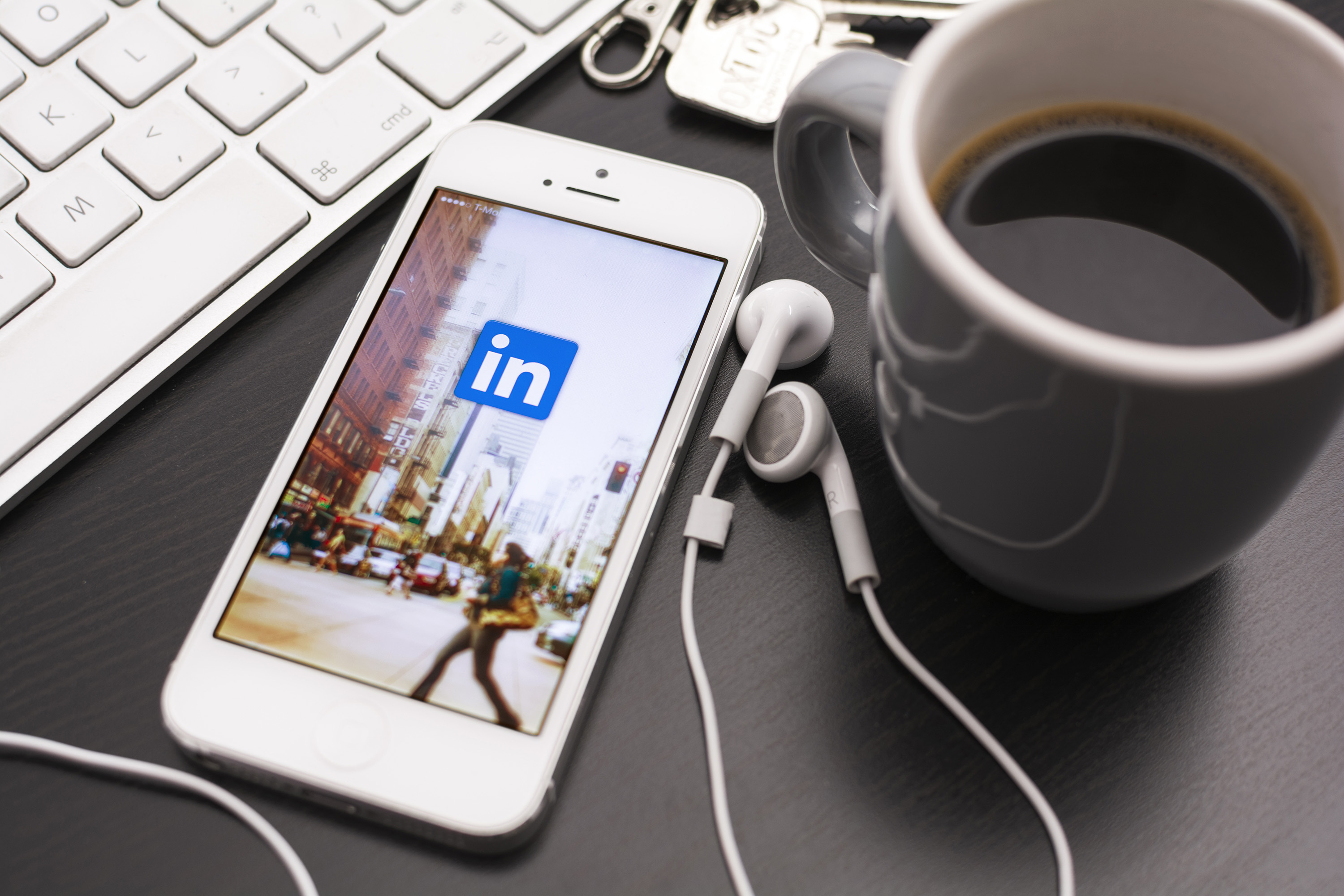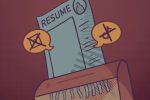Find a “Link” to the Right Network
Building the right LinkedIn profile is a difficult task, but finding a job in the real world without marketing yourself is a lot tougher, folks.
By Crissonna Tennison, UCLA
There are many cool places to hang out in college—the bar (if you’re old enough to get in), your neighbor’s house party (if you didn’t get into the bar) or the football games (if your school’s team doesn’t suck).
But where are all the cool, overachieving students hanging out? Conferences? Honor societies?
Neither! They’re hanging out on LinkedIn. That’s why when they graduate, they will be driving away in a new company car, and you’ll be stuck riding with your parents and younger siblings to the nearest Red Lobster.
For college students, it’s pretty clear that not being on the latest social networks, like Snapchat and Instagram, can be a social liability. If you’re choosing to opt out of the social media game, it’s because you’re either cool enough to sacrifice the social benefits, or you think you’re cool enough to sacrifice the social benefits. Kudos to you!
But while it’s one thing to be too cool for other social media, is the same true of LinkedIn?
Possibly. Recent California State University Sacramento graduate Max Katkanov says that LinkedIn “was irrelevant” in getting him an electrical engineering internship that resulted in a fulltime job offer right out of college. If you ask him, personal connections will always be the most helpful in securing a job.
Ana Palacio, a fourth year political science student at UCLA, feels somewhat differently. “LinkedIn is getting to be absolutely necessary for the job world. It is basically your virtual resume.” While she agrees that personal connections help newcomers determine what connections on LinkedIn are worth making, having a profile on the recruiting giant accelerates the networking process—an indispensable goal for someone who is just establishing a foothold in their field.
Recent graduate Michael Gracias agrees. “I literally didn’t know anyone in the industry, especially being a foreign student. I searched LinkedIn for people that worked in the company in HR… LinkedIn helped me objectively apply to companies and served as a record of whom I’ve reached out to.” With LinkedIn’s help, Gracias secured his current job of two and a half years right out of college.
So, LinkedIn has definitely been instrumental in helping people, even college students, get jobs. More significantly, however, the recruitment giant makes it possible to build relationships with a wider network of people who are aware of your career focus and skills. In today’s fast-paced, highly innovative economy, few people will stay in one job for their entire careers, or even more than a few years. Flexibility and mobility are the most important assets for a twenty-first century worker to have. If people like Gracias ever need to find a new job or start their own company, they will have a fertile network waiting for them.
Many recruiters, including representatives from powerful companies like Google and Twitter, pay more than $8,000 per year to recruit talent from LinkedIn. Such headhunters will use keywords to search for their ideal candidates, employed or not. They then monitor those candidates, waiting until they are available for snatching up. Can you imagine showing up to your dream job every day, knowing in the back of your mind that an even dreamier employer is on standby in case you decide to leave? It’s comforting, if a little creepy.

But that level of success requires a lot of work. If you’re going to join the overachievers at the LinkedIn party, you can’t be the person standing in the corner holding a drink defensively and nodding your head to the warmed-over Sia remix. You have to be on point: wear your best clothes, have plenty of caffeine in advance and just enough liquor in your system to make you more sociable. (Not enough to make you sloppy. This isn’t an office Christmas party—that’s for after you get hired.) You can’t hop on LinkedIn, halfway complete your profile and never update it or make connections. Palacio has some sage advice in this regard: “You do have to put work into it and update it regularly, as well as posting professional achievements.” Gracias seconds this, saying, “A good profile goes a long way… I would send a personalized message as soon as my connection would accept the invite so I’m always on top of it… Also never downplay your skills.”
A good profile might go a long way, but an open wallet can take you even further on LinkedIn, where you can pay $59.99 for a premium profile, officially called an “all-purpose Business Plan.” Premium profiles appear above free profiles in search results, and while free users can only direct message people a few degrees removed from them, premium members can message anybody. This aspect is unfair to jobseekers who can’t afford monthly membership because they, you know, don’t have a job.
This unfairness doesn’t change the fact that your online presence is becoming a factor in whether companies will hire you. Even if they do not recruit through LinkedIn, a growing number of companies Google potential candidates to get a feel for their personality and self-presentation. You likely know that if you post videos online of the drunken rampage you went on at your neighbor’s party, companies will not take you seriously. But while normal people simply focus on what they don’t want people to see, overachievers focus on how they do want to be seen. LinkedIn, despite its flaws, provides a perfect platform for a professional online presence.
LinkedIn may not be the most enjoyable place to spend your time, especially if you are having a senior year existential crisis. Indeed, your first career success outside of college may have nothing at all to do with LinkedIn. But it serves as a good opportunity to prepare for an economic future where we will always have to be marketing ourselves, even while holding down a seemingly secure job. So, if you want to procrastinate from writing your midterm essay, work on your LinkedIn profile instead.

















